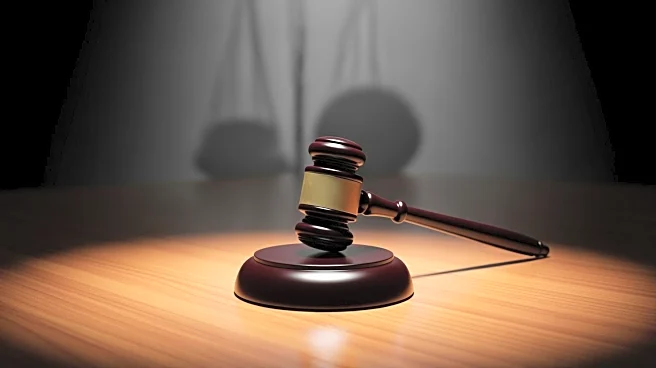What's Happening?
Adelita Grijalva, the newly elected representative from Arizona, is set to be sworn into Congress after a delay linked to her support for releasing the Jeffrey Epstein files. House Speaker Mike Johnson
is expected to administer the oath of office. Grijalva's swearing-in was postponed, which she attributes to her stance on the Epstein files, a position that has delayed representation for over 800,000 Arizonans. Grijalva's signature would be the decisive 218th on a petition to force a vote on the files, a bipartisan effort led by Reps. Thomas Massie and Ro Khanna. The delay in her swearing-in has sparked criticism from Democrats, who accuse Johnson of stalling to avoid the vote. Johnson, however, has stated he would allow the vote and had delayed the swearing-in until after the government reopened.
Why It's Important?
The swearing-in of Adelita Grijalva and the potential vote on the Epstein files hold significant implications for U.S. politics and public accountability. The release of the Epstein files could shed light on high-profile individuals involved in the scandal, potentially leading to legal and political repercussions. Grijalva's stance highlights the ongoing demand for transparency and justice for victims of Epstein's crimes. The situation also underscores the political maneuvering within Congress, as delays in swearing-in representatives can impact legislative processes and representation. The outcome of the vote could influence public trust in government institutions and their handling of sensitive issues.
What's Next?
Following her swearing-in, Grijalva is expected to sign the petition to release the Epstein files, potentially triggering a vote by early December. This development could lead to increased scrutiny of those implicated in the files and further political debate. Additionally, Grijalva's first vote will likely be on a plan to reopen the government, a critical issue given the current shutdown. The resolution of these matters will be closely watched by political leaders, the media, and the public, as they could have lasting effects on legislative priorities and public perception of congressional effectiveness.








